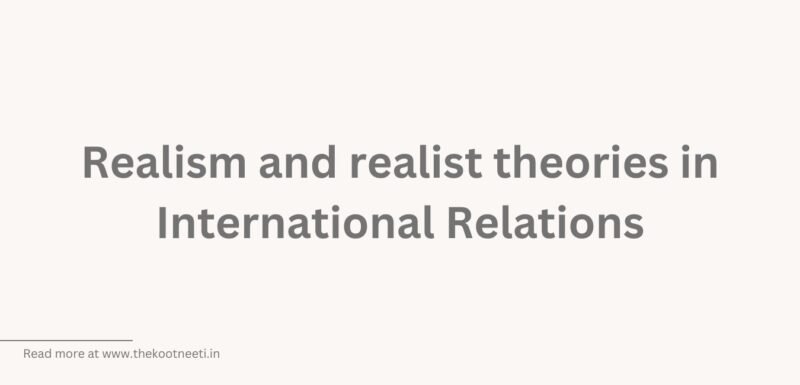Realism and realist theories in International Relations

Realism is a perspective in international relations that emphasizes the role of power and national interest in shaping international politics. Realists argue that states are motivated primarily by their own self-interest, and that they seek to maximize their own power and security in an anarchic international system.
Realists view the international system as characterized by a struggle for power, and argue that states must be prepared to use force in order to protect their own interests. Realists also argue that states must be mindful of their relative power in the international system, and that they must be prepared to balance against potential threats to their security.
Realism has been a dominant perspective in international relations, and has influenced the development of many important theoretical frameworks, such as classical realism and neoliberalism. However, realism has also been the subject of much criticism, with some scholars arguing that it is too narrow in its focus on power and national interest and that it fails to adequately take into account the role of ideas, values, and institutions in shaping international politics.
There are several different types of realism theories in international relations, including:
- Classical realism: Classical realism is a perspective that emphasizes the role of power and national interest in shaping international politics. Classical realists argue that states are motivated primarily by their own self-interest, and that they seek to maximize their own power and security in an anarchic international system.
- Neorealism: Neorealism is a perspective that builds on classical realism, but seeks to develop a more systematic and scientific approach to understanding international politics. Neorealists argue that the international system is characterized by a structural balance of power, and that states behave in ways that are determined by the distribution of power in the system.
- Offensive realism: Offensive realism is a perspective that emphasizes the role of power in shaping international politics, and argues that states are motivated by the desire to maximize their own power and security. Offensive realists argue that states are rational actors that seek to maximize their own power and security, and that they are willing to use force to achieve these goals.
- Defensive realism: Defensive realism is a perspective that builds on offensive realism, but argues that states are primarily motivated by the desire to avoid being dominated by other states. Defensive realists argue that states are rational actors that seek to avoid being overpowered by other states, and that they are willing to use force to defend themselves against potential threats to their security.
These are just a few examples of the different types of realism theories in international relations, and there are many other variations and approaches that fall under the umbrella of realism.


















